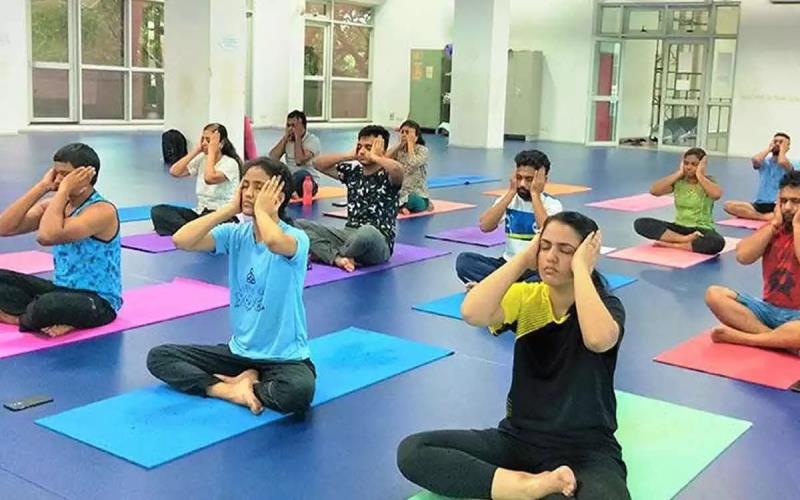In today’s fast-paced world, relaxation is essential. This blog post offers wellness enthusiasts, stressed professionals, and health seekers insights into the science of relaxation, various techniques, and practical tips for maintaining a relaxation routine.
Understanding the Science of Relaxation
How Relaxation Affects the Body
Relaxation has profound effects on our physical well-being. When we relax, the body’s parasympathetic nervous system activates, which helps slow down the heart rate and lower blood pressure. This ‘rest and digest’ state contrasts sharply with the ‘fight or flight’ response triggered by stress. Over time, frequent moments of relaxation can improve cardiovascular health, boost the immune system, and reduce the risk of chronic illnesses.
Relaxation and Mental Health
Mental clarity and emotional balance are other key benefits of relaxation. When we take time to unwind, our brain releases feel-good hormones like serotonin and dopamine. These neurotransmitters help alleviate anxiety, reduce symptoms of depression, and improve overall mood. Additionally, relaxation techniques can enhance concentration, creativity, and problem-solving skills by giving the brain a much-needed break from constant stimulation.
The Connection Between Mind and Body
The mind-body connection is vital in understanding why relaxation is so beneficial. Stress doesn’t just stay in the mind; it manifests physically through tension, headaches, and fatigue. By practicing relaxation, we address both mental and physical health, creating a holistic approach to well-being. Techniques such as deep breathing, for example, can calm the mind while also relaxing the muscles.
Exploring Different Techniques for Relaxation
Meditation
Meditation is one of the most effective ways to achieve deep relaxation. It involves focusing the mind on a particular object, thought, or activity to train attention and awareness. There are various forms of meditation, including mindfulness, mantra, and guided meditation. Each type offers unique benefits, but all aim to calm the mind and reduce stress.
Yoga and Stretching
Yoga combines physical postures, breathing exercises, and meditation to promote relaxation and overall well-being. Regular practice can increase flexibility, improve muscle strength, and reduce physical tension. Stretching, even without a full yoga routine, can also help release tightness in the body and encourage a sense of relaxation.
Spa Days and Self-Care Rituals
Sometimes, treating yourself to a spa day can be the ultimate relaxation experience. Spa treatments like massages, facials, and hydrotherapy can relieve physical tension and rejuvenate the mind. If you’re near Orem, consider visiting a massage therapist like those in Orem for a professional experience. However, you don’t need to visit a spa to enjoy these benefits. Create your own self-care rituals at home, such as a warm bath with essential oils, a DIY facial, or a relaxing foot soak.
Insights from Wellness Experts
Nutrition and Relaxation
Experts also highlight the role of nutrition in relaxation. Consuming a balanced diet rich in whole foods, such as fruits, vegetables, whole grains, and lean proteins, can support mental and physical health. Certain foods, like chamomile tea, dark chocolate, and nuts, have calming properties and can be included in your diet to promote relaxation.
Technology and Relaxation
In the digital age, technology can both hinder and help relaxation. A wellness coach advises using apps designed for relaxation, such as meditation guides, breathing exercises, and sleep aids. However, he also warns against excessive screen time, which can contribute to stress and disrupt sleep patterns. Finding a balance between beneficial technology use and digital detox is key.
Tips for Sustaining a Relaxation Routine
Consistency is Key
The most important factor in sustaining a relaxation routine is consistency. Make relaxation a non-negotiable part of your daily schedule, just like eating or sleeping. Set reminders on your phone or calendar to ensure you don’t skip your relaxation time, no matter how busy you get.
Mix Up Your Techniques
To keep your routine engaging, try mixing up your relaxation techniques. Alternate between meditation, yoga, and other practices to prevent boredom and maintain your interest. Exploring new methods can also help you discover additional benefits and keep your relaxation routine fresh and exciting.
Involve Loved Ones
Sharing your relaxation practices with loved ones can enhance the experience and provide mutual support. Invite family members or friends to join you in meditation sessions, yoga classes, or self-care rituals. Creating a shared relaxation routine can strengthen your relationships and foster a sense of community.
Conclusion
Prioritizing relaxation is essential for achieving a balanced and fulfilling life. By understanding the science behind relaxation, exploring various techniques, and learning from real-life success stories, you can create a sustainable relaxation routine that suits your needs. Remember, consistency and variety are key to maintaining your practice.

